CubaDebate 174
Love in times of pandemic

Love in times of pandemic
February 11, 2021
Translated and edited by Walter Lippmann for CubaNews.
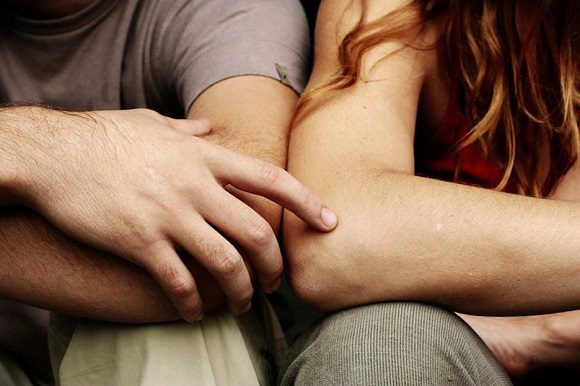
There are as many ways to love as there are people and heartbeats in the world. Photo: Elisa Mendes / Cultura Inquieta
Although the exceptional circumstances caused by COVID-19 mean that we cannot yet do as many things as we want to do, that we cannot yet kiss and touch and embrace as we used to and as we will do again, that cannot stop us from continuing to love.
There are as many ways of loving as there are people and heartbeats in the world. But immersed in a pandemic of perimetralized provinces, of physical and emotional safety distance or of norms and fears, we are forced to relate to each other as we have never done before.
The world has become confined in every sense, but we continue to love seamlessly as best we know and can, with memories and imaginary embraces. We feel that, paradoxically, we are farther and closer than ever to those or that we love.
How are we feeling love? How is it saving us in this difficult journey? Is love the most resistant and mutable feeling in the universe? To think about these questions, Cultura Inquieta leaves us this selection of photographs.
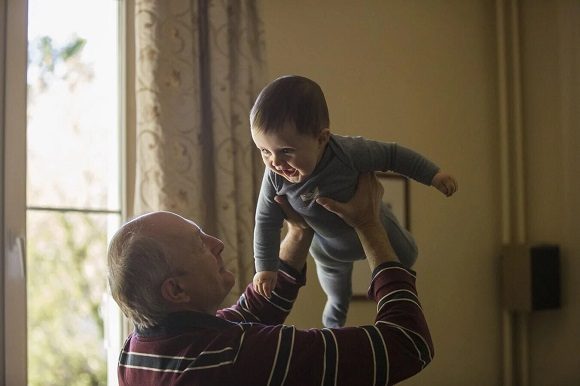
How are we feeling the love? Photo: Jonnhy Cohen / Unsplash
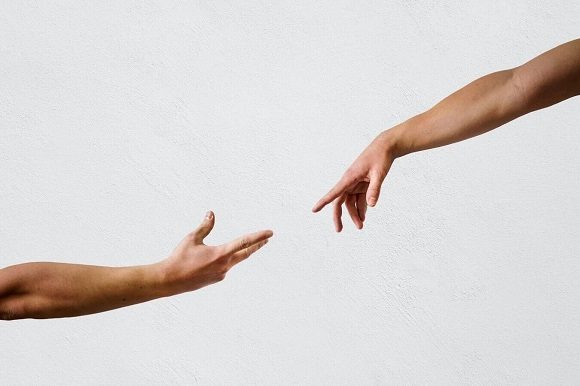
We feel that, paradoxically, we are farther and closer than ever to those or that we love. Photo: Sebastian Dimitru / Unsplash

But immersed in a pandemic of perimetralized provinces, of physical and emotional safety distance or of norms and fears, we are forced to relate to each other as never before. Photo: Maico Pererira / Cultura Inquieta
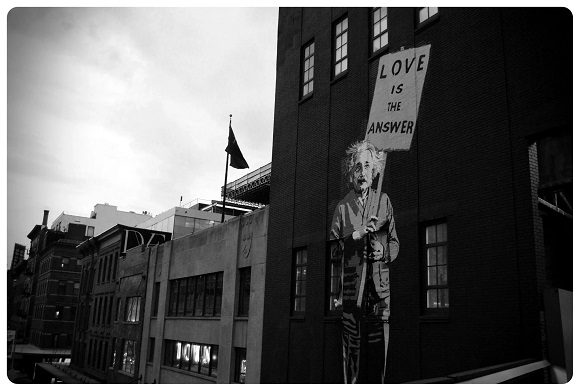
In what way are you saving us in this difficult journey? Photo: Cultura Inquieta
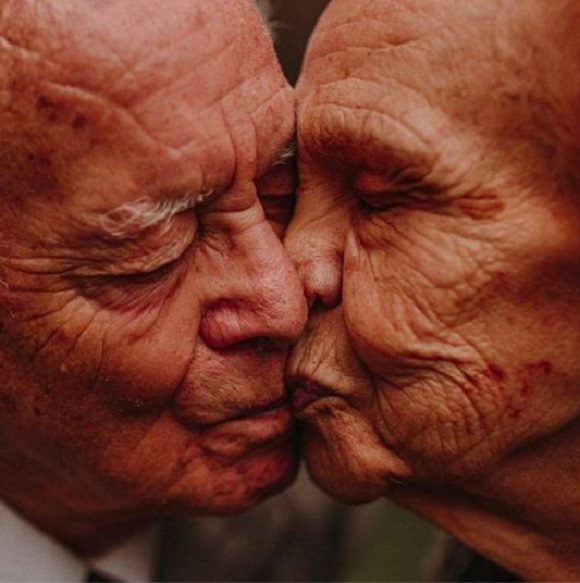
The world has become confined in every sense, but we continue to love seamlessly as best we know and can, with memories and imaginary embraces. Photo: Pablo Beglez / Cultura Inquieta
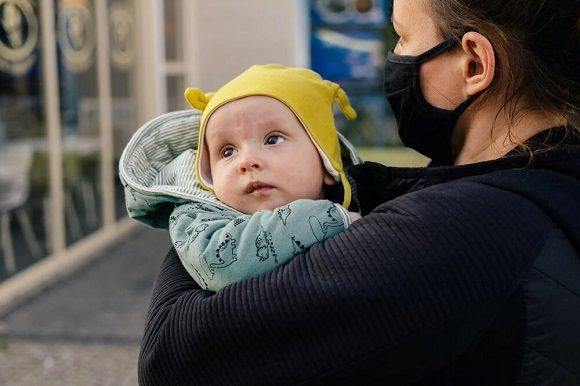
But immersed in a pandemic of perimetrical provinces, of physical and emotional safety distance or of norms and fears, we are forced to relate to each other as never before.Photo: Marcin Jokwiack / Unsplash
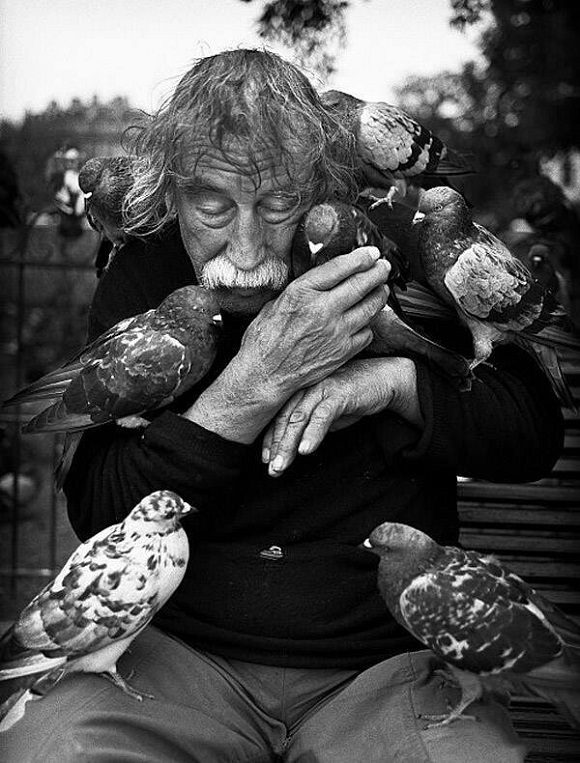
We feel that, paradoxically, we are farther and closer than ever to those we love. Photo: Pierre Belhassen
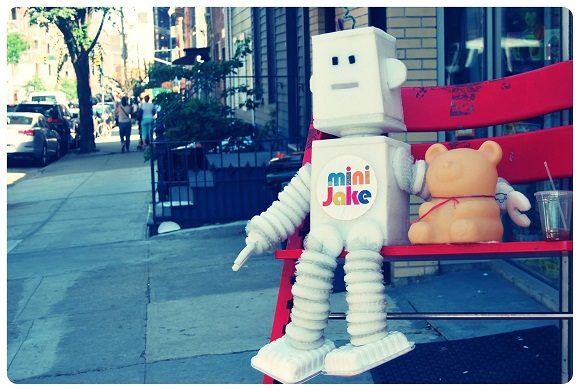
But immersed in a pandemic of perimetrical provinces, of physical and emotional safety distance or of norms and fears, we are forced to relate to each other as never before. Photo: Cultura Inquieta
Activities where self-employment is not allowed.

Download in PDF, list of activities where self-employment is not allowed.
February 10, 2021
Translated and edited by Walter Lippmann for CubaNews.
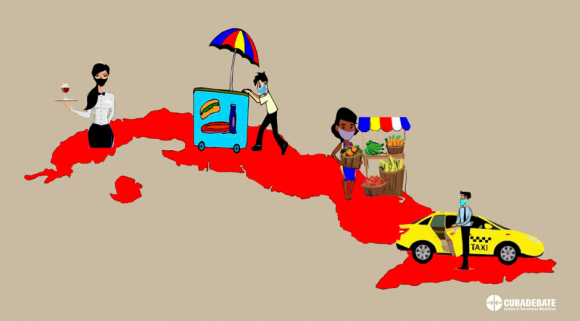 The National Classification of Economic Activities (CNAE), is integrated in 4 levels of aggregation that are distributed in 21 sections identified by an alphabetical code of one letter, subdivided in turn in 87 divisions, 237 groups, 421 classes, that in total contain 2 thousand 110 activities, limiting totally or partially some of these structures, or only certain activities, that the proposal proposes to limit 124 of them.
The National Classification of Economic Activities (CNAE), is integrated in 4 levels of aggregation that are distributed in 21 sections identified by an alphabetical code of one letter, subdivided in turn in 87 divisions, 237 groups, 421 classes, that in total contain 2 thousand 110 activities, limiting totally or partially some of these structures, or only certain activities, that the proposal proposes to limit 124 of them.
The list does not include activities considered illegal for all economic actors or expressly prohibited by law, such as: hunting and fishing of prohibited and endangered species, exploitation of endemic plants, child labor and forced labor, among others.
Download the list of activities where self-employment is not allowed (PDF 153 KB) (in Spanish)
http://media.cubadebate.cu/wp-content/uploads/2021/02/Anexo-No-1.pdf
A Guantanamero with Marie Curie

A Guantanamero who worked with Marie Curie
In 1925 he became the first Latin American to graduate as a specialist in Radiology and Radiodiagnosis. In 1927, at the age of 26, he graduated as Doctor of Medicine at La Sorbonne.
Date: December 15, 2012
Translated and edited by Walter Lippmann for CubaNews.
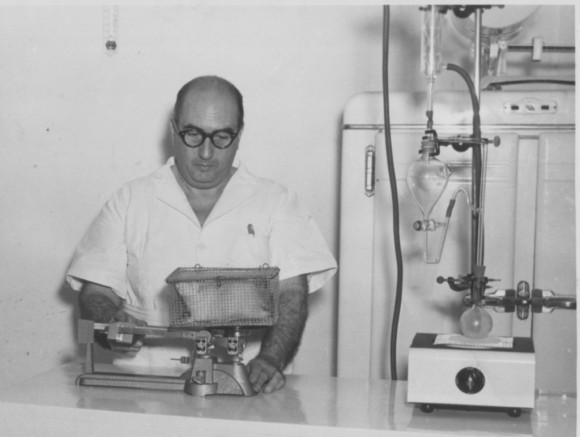
Julio Jané. In 1925 he became the first Latin American to graduate as a specialist in Radiology and Radiodiagnosis. In 1927, at the age of 26, he graduated as Doctor of Medicine at the Sorbonne.
Julio Jané. In 1925 he became the first Latin American to graduate as a specialist in Radiology and Radiodiagnosis. In 1927, at the age of 26, he graduated as Doctor of Medicine at the Sorbonne.[/caption]
One hundred and eleven years ago, a series of events took place in Cuba worthy of being engraved in that book of yesterday that is our national memory.
Did you ask for examples? Well, here are just a handful of them.
In that already remote 1901, Ñico Saquito, Luis Marquetti and Rafael Cueto were born to Cuban music. The National Library is founded. Havana joins the number of cities in the world that have streetcars.
Yellow fever is drastically reduced, thanks to the application of the theory enunciated by the Camagüeyan genius Carlos J. Finlay.
Meanwhile, in the southeast of Cuba, in the Villa del Guaso, on October 22, 1901, a certain couple -formed by the doctor in pharmacy Mr. Pablo Jané Trocné and his cousin Julia Jané Escobedo- is giving birth to a child. An apparently irrelevant fact, but which would later prove its transcendence.
THE CAREER OF AN ILLUSTRIOUS CUBAN
Yes, when the twentieth century was dawning, the Jané-Jané family of Guantanamo had a child, who they named Julio. Twenty-seven years later, we will find him as an assistant to that glory of world science, the Polish Marie Curie -born Marja Sklodowska-, at the Rhodium Institute in Paris. For several years he would assist in their research -until the death of the scientist- to that pinnacle of knowledge.
Julio Jané graduated in Medicine at the universities of La Sorbonne and Havana. He passed his residency exams at the French Croix Saint Simon Anti-Cancer Center (1923). In 1925 he became the first Latin American specialist in Radiology and Radiodiagnosis. Two years later, he was nominated to become the director of the surgical services of the Anti-Cancer Center of the Lariboisière Hospital in Paris.
Among many other qualifications, he obtained a degree as a nuclear energy technician from the Institute of Nuclear Studies based in Oak Ridge, Tennessee, the place in the United States where the atomic bomb was developed. He already enjoyed renown in the world scientific world, and was not lacking in offers in Paris, which he turned down to work in his country.
A PIONEER
Armed with his talent and the solid preparation he had acquired, Julio Jané was a pioneer in science in Cuba, where he returned in 1937.
Here he put electrology to work in rehabilitation and physiotherapy. His experiments created a novel method to diagnose cancer, and he was involved in the application of ultrasound, when this resource was still in its infancy. He worked successfully in the rehabilitation of polio patients and was a sworn enemy of invasive techniques.
In El Vedado he gave life to the Electrotherapy and Radiotherapy Center. He contributed to the founding of the Radium Institute, attached to the Reina Mercedes Hospital, while at the same time he received offers to work in Barcelona or New York.
Jané collaborated with the American atomic physicist Paul C. Aebersold (1910-1967), one of the greats in the peaceful applications of nuclear science. He shared with Dr. Aebersold sympathy for the nascent Cuban revolution. Perhaps this explains why the American died, under strange circumstances, falling from a skyscraper, a fact that the American special services wanted to show as a suicide, caused by psychic imbalance.
Dr. Julio Jané was not only a leading scientist, but also a man of high civic virtue.
His deep-rooted friendship with Eduardo Chibás, with whom he shared dreams of popular improvement, was no coincidence. (When the Orthodoxo leader was wounded by his own hand, Jané was prevented from being part of the medical board that discussed the case. This refusal led many to believe that a conspiracy had taken the leader’s life).
In the midst of the official indifference to health, he gave public talks in the university Plaza Cadenas, in order to instruct the people medically. Such action would be described as subversive by the henchmen of Fulgencio Batista’s dictatorship.
Concerned about agriculture and popular food, he advocated the conservation of food by means of radiation, because, he said, “we sow to rot”.
He declared war on transnational companies that added carcinogenic substances to food.
Batista – a usurper in power – tried to develop a nuclear project and a congress on that matter, which were not going to be anything more than masquerades. Jané opposed this “and, supported by scientists of solid prestige, among them Dr. Aebersold, managed to frustrate the political attempts.
This Guantanamero descendant of Mambises, great for his brain and his heart, was an unconditional supporter of his homeland until August 8, 1973, when he went down to the grave in the Pantheon of the Revolutionary Armed Forces.
It has been said about Dr. Julio Jané that he did not value the Hippocratic Code as a cold mandate, much less as a text of professional formality and vague importance -only useful for quoting it in speeches-, but that he assumed it as a vital commitment.
(Taken from Cubahora)
Preventing Gender Violence

Preventing Gender Violence: An End to Breaking the Silence with Unexcused Looks
 By Paquita Armas Fonseca, a Cuban journalist specialized in cultural issues. She is a regular contributor to Cubadebate and other digital media such as La Jiribilla, CubaSi and the Cuban Television Portal. She was director of El Caimán Barbudo.
By Paquita Armas Fonseca, a Cuban journalist specialized in cultural issues. She is a regular contributor to Cubadebate and other digital media such as La Jiribilla, CubaSi and the Cuban Television Portal. She was director of El Caimán Barbudo.
February 4, 2021
Translated and edited by Walter Lippmann for CubaNews.
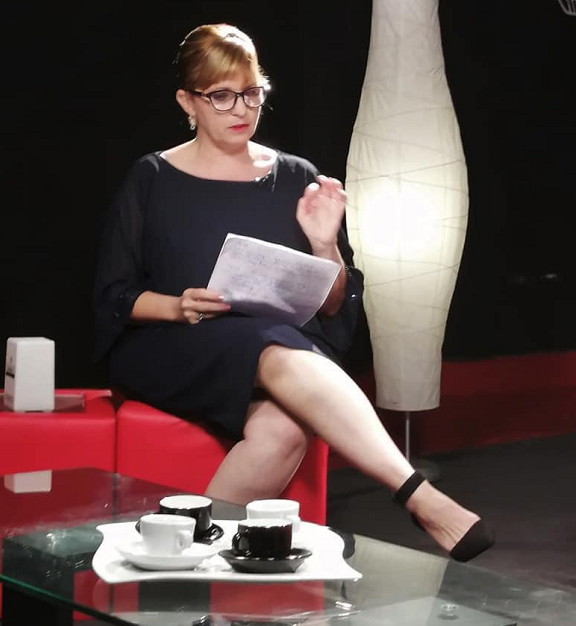
Beatriz Torres Rodríguez is the Bety who once a week has been talking about Sexuality and daily life for 20 years. Photo: TVC Portal.
Degree in Psychology, PhD in Psychological Sciences, Master in Sexuality and Sexuality Pedagogy, Professor and Senior Researcher, President of the Cuban Multidisciplinary Society for the Study of Sexuality (SOCUMES). Beatriz Torres Rodriguez is the Bety who once a week has been talking about Sexuality and daily life for 20 years, first on CHTV and then on Canal Habana.
That has been one of her jobs as a communicator, she has had others (you will find them in this text) and soon she will be the host of Miradas sin excusas, a magazine that will precede the awaited series Rompiendo el silencio (Breaking the Silence). “The panels do not comment on the chapters of the serial, but make reflections and look for alternatives and turning points to prevent gender violence to give alternatives for coping with it” stresses this charismatic psychologist:
-Why Psychology? Is there a gene in the family?
When choosing a career as a teenager, generally as in my case, there is no effective professional orientation, but I have always been a passionate reader and lover of cinema and I was attracted by the characteristics of the characters, how they faced conflicts, how there could be different alternative solutions, which not only depended on the environment in which people developed, among other elements and that approached the studies, which I later learned, were the components of the psychological framework. Also, because from what I knew was a helping profession, at that time with the vision of patients with psychiatric disorders, which constituted and constitute for me a great mystery, despite the years of professional practice.
There is no specialist in my family related to this science.
-Why sexology?
Since I was a student at the Psychology Department of the University of Havana, I became interested in this subject and received extracurricular courses given by what was at that time the National Group for Sex Education. At the same time, I began my professional practice in a Mental Health Center, and I saw how mental health disorders, whether the most complex and chronic or the most acute, mostly have an impact on sexuality and life as a couple, at different ages of life, which leads to present, from discomfort related to this area, to disorders, with a great burden of suffering in most cases.
This was later enriched by working at the Center for Medical and Surgical Research, where I expanded my diapason to the accompaniment and treatment of patients with chronic diseases, especially non-communicable diseases such as diabetes, hypertension and chronic kidney disease among others and the impact they have on sexuality, not only because of the disease itself, but also because of all the stigmas and prejudices of the patient himself, the couple, the team of professionals and society, mostly due to the lack of knowledge or undervaluation of these issues and the impact they have on the welfare of people regardless of the disease they have.
For ten years I have been the president of the Cuban Multidisciplinary Society for the Study of Sexuality (SOCUMES), one of its multiple lines of research is precisely gender violence.
In recent years I have also participated in counseling for women in situations of gender violence, where the implications are very marked in their sexuality, self-esteem and well-being, among others. In other words, for me it is an area of knowledge of great need and sensitivity and that, in our culture, since it is considered by the majority of the population as a private matter, people delay a lot in asking for help and in some cases do not do it at all.
-Where and when did you start as a communicator?
I started in 2000 on TV in CHTV, in its magazine, with the session Sexuality and daily life, with journalist Dianik Flores, a session that I later continued in Canal Habana, since its foundation 15 years ago, together with a group of prestigious directors and hosts such as Sandra, Magdiel and the entire production team, which has allowed me to grow as a person and as a professional and a systematic dialogue with viewers, because I keep a space within the session to answer them, based on the questions of the topics presented in the space. This exchange has been very enriching and I have been given alternatives of help or orientation to different services in the cases I require. Hearing, analyzing and learning from other colleagues whom I admire and who also have their section in the Magazine, has been very useful for me.
I have participated in other TV programs, such as El triángulo de la confianza, De tarde en casa, Entre tú y yo and Pasaje a lo desconocido, among others.
In addition, since 2005 and for several years, I developed in the newspaper Trabajadores a digital consultation on sexuality in their health page. The session was called “Let’s talk about sexuality”, which for years was a very interesting experience, receiving various questions from people of different ages, marital status, schooling, even from other countries, which allowed me to get feedback on the issues that most often concerned the population about sexuality and life as a couple and that many did not dare to raise, neither to their own partners, nor in the space of consultation, so we could see the usefulness of this space. I would like to acknowledge the collaboration of the journalist Carmen Alfonso, in charge of this health page.
I have seen the importance of communication on these issues in the media, since it allows a large group in the population to become aware, reflect and learn. At the same time, as a specialist, it has helped me to be aware of what concerns the population the most, in order to be able to offer help alternatives.
-Have you taken a speech course?
In 2008-2009, together with other specialists in charge of sessions at Canal Habana and a group of journalists, I took a speech course, which was very useful and a necessary learning experience.
-How long did you prepare for this job?
I was invited to be the host or moderator of the panels of specialists of the magazine Miradas sin excusas, before the presentation of the chapters of the serial Rompiendo el silencio. Although the preparation time was short, we had the necessary and deep table work, both with its director and screenwriter Elena Palacios, Altair Reyes, the head of production and advisor Karina Paz, magnificent professionals, with whom we developed an excellent teamwork.
In addition, for some years, I have had an approach from the research with the problems related to gender violence, I was one of the coordinators of the Consensus of Gender Violence, organized in 2018 by SOCUMES and in the meetings of researchers in gender violence, organized by the Oscar Arnulfo Romero Center. For the last 5 years, we have jointly organized a colloquium on this topic. For three years I have been part of the counseling team for women in situations of gender violence in this institution. All this has made it easier for me to raise awareness and deepen my knowledge of these issues.
-What topics will be discussed?

Photo: TVC Portal.
It is a specialized magazine of analysis of the different expressions of gender violence, which will serve as a framework for the two seasons of the series Breaking the Silence. It tells the stories of women and girls in situations of violence, in its different forms of presentation, from the most recognized and obvious, such as physical violence and sexual abuse, to the more subtle, but no less serious, such as psychological and other types of violence. In its second season, it expands and diversifies to other forms of violence, such as violence against men. There is a representation of the different contexts where it can occur, such as the family, the couple, school, work, among others.
Its first season was intentionally broadcast in early December 2016, in the framework of the Day for Non-Violence against Women and Girls. For the first time, a national teleseries addressed this issue of gender violence as a central axis, which continues in its second season as a common thread.
The themes of this second season are related to:
Sexual violence against girls, adolescents and adult women in its different forms of expression.
The consequences of gender violence affect the main victims (women), but also the rest of the family members and the perpetrators themselves.
One of the consequences of GBV is the reproduction of violence, particularly for women in the double condition of victim-victimizer.
Symbolic violence that uses women’s bodies to exercise control.
Gender violence towards homosexual men, homophobia, transphobia, paternity and homosexuality.
Child abuse.
Rape within the family.
Violence between men.
Stories of characters with their conflicts, limited situations and responses to them are presented, with the aim of provoking recognition, analysis and awareness of this phenomenon of gender violence.
-Could you comment on the specialists?
The panels were composed of specialists from different fields of knowledge, who had two characteristics in common:
They were experts in their fields of knowledge and in issues related to GBV.
They are very sensitive to these issues.
We had 58 appearances, according to the characteristics of the topics, there were experts who participated in more than one panel on several occasions. Psychologists, Sociologists, Jurists, Journalists, Anthropologists, Pedagogues, Doctors, Historians, Filmmakers, Communicators and Photography Professionals, among others, were represented. Teamwork was achieved and the most important thing, in my opinion, is that we sought to enlighten the population on these issues, to see the signs of GBV, its causes, repercussions in the family, society, the different alternatives to face it and where to find turning points in the different situations that arise, in order not to reproduce violence and, most importantly, to prevent it.
-Any recommendations for viewers?
Not to be alarmed by these issues, since the important thing is to recognize the different forms of GBV, and that this is a social problem of such importance, that to stop at the number, or if it is more or less frequent, is not the essential thing, but if a single woman, girl or any person is in these situations, it deserves all our effort and attention. The most important thing is to PREVENT, so that GBV and any form of violence does not become naturalized. Hence the political will of our country and its institutions to achieve an effective, comprehensive and integrated response. This magazine is part of this effort, of the many that are needed.
The FMC, together with other institutions, is leading this strategy, which is already showing signs such as the helpline and the Women’s Advancement Program, among others.
-Is there anything I haven’t asked you or anything you’d also like to say?
Finally, I would like to thank once again the entire team of the magazine and Ms. Mareleen Díaz Tenorio, with whom we had a systematic exchange during the entire filming process, since she was the capable advisor of the series Breaking the Silence.
(Taken from TVC’s website)
Marie Curie: ten times the first

Marie Curie: ten times first
November 12, 2012
Translated and edited by Walter Lippmann for CubaNews.
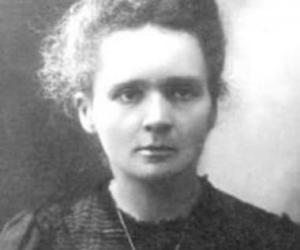
Marie Curie
Intelligence, rigor, will, imagination, passion… these were some of the qualities of Marie Curie, the first woman to win the Nobel Prize. But there were more things in which she was a pioneer. We list them below:
1. Top of her class when she finished high school at the age of 15 (1883). She was awarded a gold medal.
2. The first woman to graduate in Physics at the Sorbonne University. That year (1893) only two women graduated in the entire University of Paris. Marie was also the first in her class.
3. The first person to use the term radioactivity (1898).
4. The first woman in Europe to receive a doctorate in science (1903).
5. The first woman to receive a Nobel Prize in Physics (1903). The prize was awarded to her, together with her husband Pierre and Henri Becquerel, for the discovery of radioactivity.
6. The first woman to be a professor and head of laboratory at the Sorbonne University (1906).
7. The first person to have two Nobel Prizes. The second was in Chemistry, in 1911, for having prepared radium and researched its compounds.
8. The first woman to be a member of the French Academy of Medicine (1922).
9. The first Nobel mother with a Nobel daughter. In 1935 her daughter Irene was awarded the prize in Chemistry.
10. The first woman to be buried under the dome of the Pantheon on her own merits (1995).
Marie Curie was born on a day like today

Marie Curie was born on a day like today
By Carlos del Porto
November 7, 2017
Translated and edited by Walter Lippmann for CubaNews.
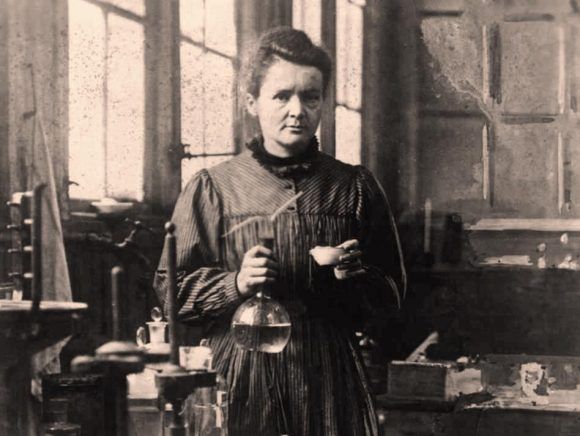
On November 7, 1867, Polish scientist Maria Salomea Slodowska Curie is born in Warsaw, Poland.
Maria Curie was a Polish physicist, mathematician and chemist, and a naturalized French citizen. She was the fifth daughter of Władysław Skłodowski, a high school teacher in physics and mathematics like her grandfather, and Bronisława Boguska, who was a teacher, pianist and singer.
In 1891, at the age of 24, Maria enrolled in the Mathematical and Natural Sciences Department at the Sorbonne University in Paris, France. From that moment on, Maria was renamed Marie Skłodowska. Despite having a solid cultural background acquired in a self-taught way, Marie had to work hard to improve her knowledge of French, mathematics and physics, in order to keep up with her peers.
In 1893, she obtained a degree in Physics and came first in her class; in 1894, she also graduated in Mathematics, coming second in her class. In that year she also met her future husband, Pierre Curie, who was a professor of physics. The two began working together in the laboratories and married on July 26, 1895.
After a double degree, the next challenge was to obtain a doctorate. Up to that time, the only woman who had been awarded a doctorate was the German Elsa Neumann. The first step was to choose the topic of her thesis. After discussing it with her husband, they both decided to focus on the work of physicist Henri Becquerel, who had discovered that uranium salts transmitted rays of an unknown nature. This work was related to the recent discovery of X-rays by the physicist Wilhelm Röntgen. Marie Curie became interested in this work and, with the help of her husband, decided to investigate the nature of the radiation produced by uranium salts.
Marie Curie and Pierre Curie studied radioactive leaves, in particular uranium in the form of pitchblende, which had the curious property of being more radioactive than the uranium extracted from it. The logical explanation was to suppose that the pitchblende contained pieces of some element much more radioactive than uranium. They also discovered that thorium could produce radioactivity. After several years of constant work, by concentrating various kinds of pitchblende, they isolated two new chemical elements.
The first, in 1898, was named Polonium in reference to their native country. The other element was named Radium, due to its intense radioactivity. Pierre had periods of great fatigue that even forced him to rest in bed, and both suffered burns and sores from their dangerous radioactive work. Shortly thereafter Marie obtained one gram of radium chloride, which she achieved after handling almost eight tons of pitchblende. In 1902 they presented the result, which brought them fame. Both Pierre and Marie accept and lend all their research without making any profit from it by means of patents, a fact that is applauded by the whole world.
Directed by Becquerel himself, on June 25, 1903, Marie defended her doctoral thesis, entitled Investigations on Radioactive Substances, before a tribunal presided over by the physicist Gabriel Lippmann. She obtained her doctorate and was awarded cum laude. Together with Henri Becquerel and Pierre Curie, Marie was awarded the Nobel Prize in Physics in 1903, “in recognition of the extraordinary services rendered in their joint research on the radiation phenomena discovered by Henri Becquerel”. She was the first woman to receive such an award.
On April 19, 1906, a tragedy occurred: Pierre was run over by a six-ton carriage and died without anything being done for him. Marie was greatly affected, but continued with her work and refused a life pension. She also took over her husband’s professorship and was the first woman to teach at the university in the 650 years since its founding. On November 15, 1906, Marie Curie gave her first lecture. Expectations were high, as it was the first time a woman had taught a class at the university. A large number of people attended; many of them were not even students. In that first session, Marie spoke about radioactivity.
In 1910 she demonstrated that a gram of pure radium could be obtained. The following year she received the Nobel Prize in Chemistry “in recognition of her services to the advancement of Chemistry by the discovery of the elements Radium and Polonium, the isolation of Radium and the study of the nature and compounds of this element”.
With a disinterested attitude, she did not patent the process of Radium isolation, leaving it open to the research of the entire scientific community. Marie Curie was the first person to be awarded two Nobel Prizes in two different fields. The other person to have won it so far is Linus Pauling (Chemistry and Peace). Two Nobel Prizes in the same field have been won by John Bardeen (Physics) and Frederick Sanger (Chemistry).
A few months after her last visit to Poland, in the spring of 1934, Curie, after going blind, died on July 4, 1934 at the Sancellemoz Clinic, near Passy (Haute-Savoie, France), from aplastic anemia, probably due to the radiation to which she was exposed in her work, and whose harmful effects were still unknown. She was buried next to her husband in the cemetery of Sceaux, a few kilometers south of Paris.
Sixty years later, in 1995, her remains were transferred, together with those of Pierre, to the Pantheon in Paris. In the speech delivered at the solemn entry ceremony, on April 20, 1995, the then President of the French Republic, François Mitterrand, addressing especially her grandchildren and great-grandchildren, emphasized that Marie had been the first woman to be buried in the Pantheon, noted that Marie, who had been the first French woman to be a Doctor of Science, to be a professor at the Sorbonne and also to receive a Nobel Prize, was again the first French woman to be laid to rest in the famous Pantheon in Paris on her own merits (in which she remains the only one to this day).
Her eldest daughter, Irène Joliot-Curie (1897 – 1956), also won the Nobel Prize in Chemistry, in 1935, one year after her mother’s death, for her discovery of artificial radioactivity.
She founded the Curie Institute in Paris and in Warsaw, and in addition to the two Nobel Prizes, won the Davy Medal in 1903, the Matteucci Medal in 1904 and the Willard Gibbs Prize in 1921.
Cuban vaccine engineering

Vaccines and sovereignty (IV)
Cuban vaccine engineering
By Luis A. Montero Cabrera
January 28, 2021
This is the fourth in a series of articles
Translated and edited by Walter Lippmann for CubaNews.
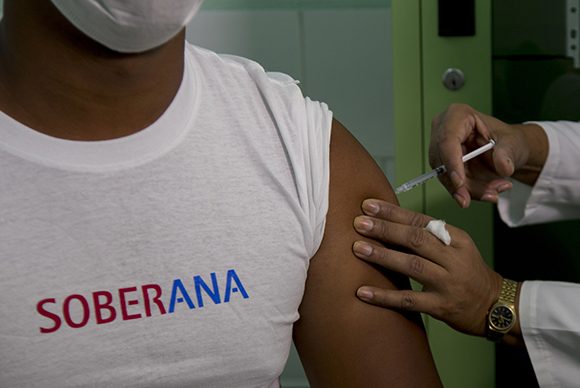
Cuba is rapidly developing four vaccine projects against coronavirus. Photo: Ahora.
It has been news in Cuba for months that we are generating our vaccines from platforms already created. The centers generating such projects work in partnership, exchanging experiences and knowledge, and also competing, as it should be done in a society that works for the good of all. Any group that participates will be happy for the triumph of the other, because what matters is the welfare of the whole society. Obviously they will also be very happy if their own vaccine candidate is successful.
It has been mentioned that our vaccines are all based on a key antigen of the COVID 19 virus: the constituent molecules of the outer spikes of the aggregate that makes up the virus. This molecular complex is referred to as RBD, from the acronym for receptor binding domain. We have also learned that adjuvants are substances that increase the effectiveness of vaccines. Their use is a common practice of this “engineering”, even to achieve vaccines against several diseases simultaneously.
The Finlay Vaccine Institute (IFV) is an institution that has grown from the success in the 80’s of the last century with the world’s first vaccine against meningococcus B. The current management has another very important success under its belt, in this case from the University of Havana (UH), with the world’s first commercial synthetic vaccine. This was put into practice at the beginning of this century against haempphilus influenzae. IFV is now working on at least two vaccine candidates known as SOBERANA 01 and SOBERANA 02. The RBD antigens of both are chemically treated variants of the coronavirus spikes.
The SOBERANA 01 antigen is based on the RBD produced from live mammalian cells into which DNA has been introduced with the codes to make them produce the desired molecules. This is why it is called “recombinant” RBD. The great advantage is that these molecules are identical to those of the virus but have been obtained without the intervention of this harmful entity and in a very efficient and harmless way in our industrial plants for this purpose in the neighboring Center for Molecular Immunology (CIM). The latter has a long experience in these matters and a proverbial willingness to empower itself through collaboration.
The RBD has been transformed with highly advanced laboratory chemical methods to duplicate it in a single structure. This is a so-called “dimeric” form that in preliminary tests proved to be more stimulating to the immune system. In short, it is more immunogenic than the simple “monomeric” form.
SOBERANA 01 also contains proteins that are harmless antigens of the outer membrane of the dreaded meningococcus bacteria in conjunction with aluminum hydroxide as adjuvants. The meningococcal antigen helps to “trigger” the generation of antibodies. Aluminum hydroxide is harmless, but it prolongs the presence of the antigen and gives our defenses more time to react. The interest in the effectiveness of a vaccine lies in the fact that it causes us to generate antibodies (immunogenicity) and that these are the ones that trigger the defense actions against COVID 19 (specific immunogenicity).
The SOBERANA 02 antigen is the same RBD of the COVID 19 virus but in monomeric form. The aim is to provoke the immune response of the organism by conjugating it (molecularly binding it) with another well-known and harmless antigen as adjuvant: the “tetanus toxoid”. This substance is associated with the bacteria that produce tetanus, but is chemically inactivated to render it harmless. It has long been used as their highly effective vaccine. A construction of the RBD with the toxoid creates a complex containing more specific antigens. It can be said that it would be “multimeric”. Thus an interesting engineering of the antigen with an adjuvant ensues.
The Center for Genetic Engineering and Biotechnology (CIGB), one of the most important institutions in Cuban science, has generated the other vaccines. Its track record is transcendental in these matters. It has two candidates also based on the RBD antigen whose coded name is CIGB 669 for nasal application and CIGB 66 for intramuscular application. Their applications have “combat” names such as MAMBISA and ABDALA. The mambisas were the women who joined the forces of the liberating army against the peninsular crown at the end of the 19th century. This denomination was reviled and even pejorative in the Spanish royalist press of the time. They made it equivalent to something like “terrorist” today. However, when the forces of freedom triumphed, it became a symbol of sublime militancy. ABDALA is the name of a play in poetry by José Martí, his first and adolescent literary work. The hero Abdala appears as a young man who is a convinced defender of his homeland, who puts it before all other personal and family interests. Our vaccines are samples of sovereignty, the fight for freedom and love for the homeland.
The nasal formulation of the preparation CIGB 669 takes advantage of the excellent permeability capacity of the intranasal membranes. Most of our skin is shielded against the penetration of molecules of any kind. But nasal membranes are not like that. They encompass a large surface area that is very dense in blood vessels and very permeable, which makes them a very attractive route for medicating. This pathway is also naturally selected to generate some very neutralizing antibodies and in the same location that is the route of virus entry.
Its RBD is accompanied as an adjuvant with another antigen that is used in the proven “HeberNasvac”, the chronic hepatitis B vaccine that is also administered nasally. This is its nucleocapsid, which is what the central molecular complex in a virus particle is called. Viruses are not cells, but they usually have this kind of “nucleus”. HeberNasvac” is the world’s first therapeutic vaccine against a chronic infectious disease. This platform is patented by CIGB for its vaccines. In the world there is only one other nasal vaccine on the market, the FluMist and Fluenz Tetra (according to their applications in the USA and Europe) and it is used against influenza. It has the advantages of being non-invasive and can be applied even in precarious hygienic conditions, as can be the case in many places in this disparate world.
Unlike the Finlay Vaccine Institute vaccines, the adjuvant nucleocapsid in CIGB 669 is recombinant and is produced in a typical culture medium. Its RBD, also recombinant, from CIGB is produced in yeast. MAMBISA is actually a procedure consisting of dose combinations of the two CIGB vaccine candidates. ABDALA is intramuscular only with the CIGB 66 candidate.
The success of a vaccine as a drug needs to be demonstrated before mass application. How is the most indicated and effective one known? How is work being done to test Cuban vaccines in times when a single day’s delay in application can cost a life?
 Luis Alberto Cabrera Montero holds a Doctorate Chemical Sciences. He is a Senior Researcher and Full Professor at the University of Havana. He is President of the Scientific Advisory Council of the University of Havana and is a Merit Member and Coordinator of Natural and Exact Sciences of the Academy of Sciences of Cuba. For a full biography, see http://www.academiaciencias.cu/en/node/674
Luis Alberto Cabrera Montero holds a Doctorate Chemical Sciences. He is a Senior Researcher and Full Professor at the University of Havana. He is President of the Scientific Advisory Council of the University of Havana and is a Merit Member and Coordinator of Natural and Exact Sciences of the Academy of Sciences of Cuba. For a full biography, see http://www.academiaciencias.cu/en/node/674
Vaccination against selfishness and inequality

Vaccination against selfishness and inequality
By: Randy Alonso Falcón
January 27, 2021
Translated and edited by Walter Lippmann for CubaNews.
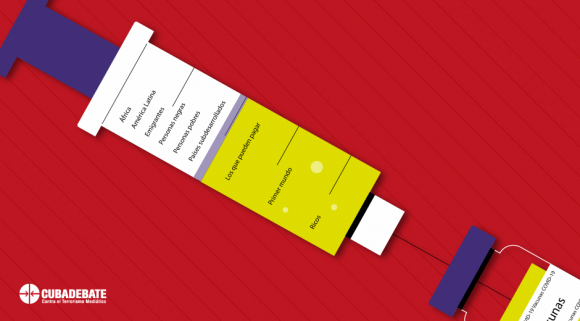 “It will not be an exhausted and outdated world order that can save humanity and create the indispensable natural conditions for a dignified and decent life on the planet. (…) This is not an ideological question; it is already a question of life or death for the human species.”
“It will not be an exhausted and outdated world order that can save humanity and create the indispensable natural conditions for a dignified and decent life on the planet. (…) This is not an ideological question; it is already a question of life or death for the human species.”
Fidel Castro Ruz
Speech at the Open Tribune of the Revolution, held in San José de las Lajas
January 27, 2001
Solidarity and Justice are still words in disuse even when the catastrophe concerns us all, like a great universal Titanic. A tiny and sticky virus has moved fears, shaken societies and health systems, provoked countless reflections on today and the future, but it has not succeeded in making equity and love for others prosper.
This week will mark the 100 millionth person infected with COVID-19 in the world and already more than 2 million people have died.
“Every day the gap between the haves and have-nots grows. The pandemic has reminded us that health and economics are linked and that we are all in the same boat. The pandemic will not end until it ends everywhere,” said World Health Organization Director-General Dr. Tedros Adhanom Ghebreyesus on Monday.
The numbers bear incontrovertible witness to the expert’s assessment.
The privileged cure
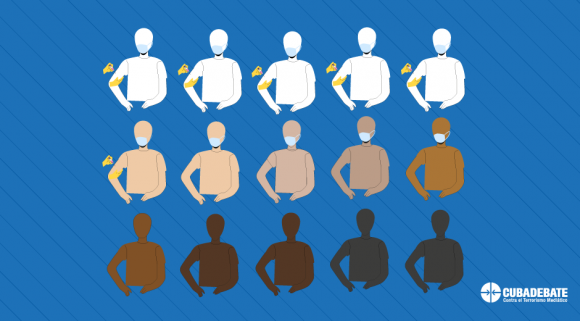
Despite numerous calls from the UN and various world leaders to seek a global response to the pandemic and to facilitate and share access to a cure for the disease, narrow views and deaf ears predominate.
“Science is succeeding, but solidarity is failing,” UN Secretary-General António Guterres noted on January 15. Several vaccines are already available worldwide to tackle the SARS-CoV-2 virus, but access to them is as deeply unequal as the world we inhabit.
Some 66.33 million doses have been administered to date, 93% of which were delivered in just 15 countries: the US, China, UK, Israel, United Arab Emirates, Germany, India, Italy, Turkey, Spain, France and Russia, according to the data analysis platform Our World in Data, based on figures from Oxford University.
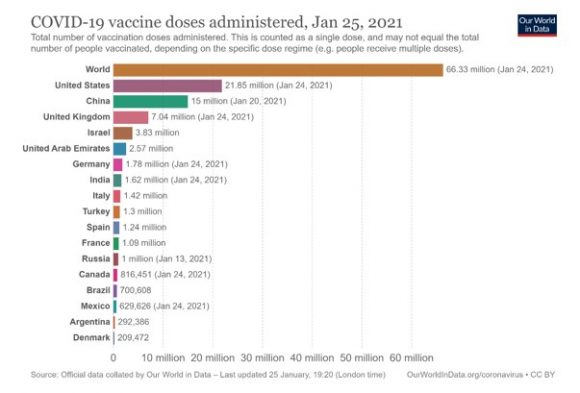
In all of sub-Saharan Africa, only 25 doses of vaccine could be administered in Guinea. Populous countries like Nigeria, with 200 million inhabitants, are waiting for the first dose.
The same scramble that took place at the beginning of the pandemic with lung ventilators, masks and protective suits is now being staged with vaccines: hoarding, overpricing and speculation. “An immoral race to the bottom,” as the WHO’s top executive described it.
The COVAX fund, created as a sort of global effort to make vaccines accessible to the poorest nations or those with limited resources, announced that in February it will begin to deliver the first doses (they first said that in January), but it recognizes that it has been limited by the lucrative agreements of various individual nations with the pharmaceutical companies that produce the anti-COVID vaccines.
Another handicap has been the high cost of the vaccines that have the most international approval so far. As Norwegian expert John-Arne Rottingen told The Guardian, “The difficulty is that we really only have widespread international approval for marketing two vaccines: the two mRNA vaccines. The challenge is that one, the Moderna vaccine is very expensive, and the other, the Pfizer / BioNTech vaccine, which was first available and is now being applied in Europe, is moderately expensive compared to others, and requires a super cold chain. The price and cold chain makes it not the ideal vaccines for a global vaccine.”
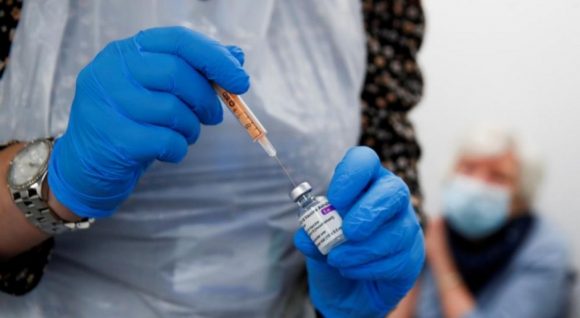
While nations like India and South Africa are calling on the WHO to campaign for pharmaceutical companies to relinquish intellectual property rights to COVID-19 vaccines and treatments. That would allow other qualified manufacturers in the South to expand production of those antidotes; countries like the US, UK and Canada have opposed the initiative. Those three wealthy nations have purchased or reserved enough doses to inoculate their populations at least four times.
High-income countries account for 16% of the world’s population, but hold more than 60% of the vaccines purchased so far.
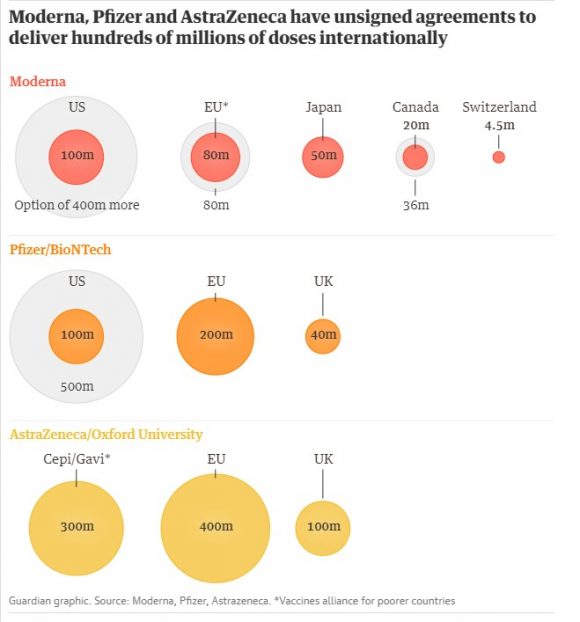
Rich countries account for the lion’s share of vaccine production. Graphic: The Guardian
Some forecasts put the total population of middle-income and poor countries that could be vaccinated this year at 27%. Duke University’s Center for Global Health Innovation estimates that there will not be enough vaccines to immunize the world’s population until at least 2023.
“The world is on the brink of a catastrophic moral failure, and the price of this failure will be paid in lives and livelihoods in the world’s poorest countries,” Dr. Tedros regretfully sentenced.
The virus of inequality
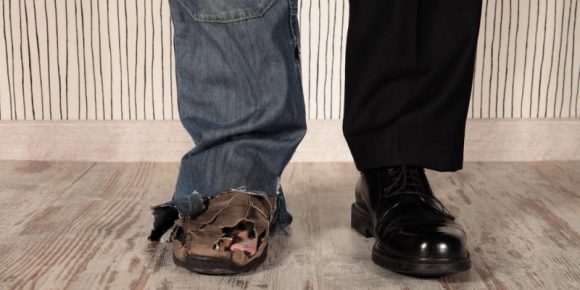
“Vaccine nationalism” is the exact reflection of an unequal and unjust world in which a few remain the great beneficiaries of wealth, for which billions must make do with the leftovers.
It is the “inequality virus” that OXFAM denounces in its most recent report, in which it evidences that the current failed economic system “allows a super-rich elite to continue to accumulate wealth in the midst of the greatest economic crisis since the Great Depression, while billions of people face great hardship to get by.”
While billionaires saw their fortunes increase between March and December 2020 by a total volume of $3.9 trillion-to amass an unimaginable $11.95 trillion-the poorest people on the planet will need “more than a decade to recover from the economic impacts of the crisis” accentuated by the COVID-19 pandemic.
Racial differences have also deepened. In the United States, the most powerful nation on the planet, if mortality rates were equal to those of the white population, nearly 22,000 Latinos and blacks would not have died from the coronavirus outbreak. In Brazil, people of African descent are 40% more likely to die from COVID than whites.
One of the conclusions of the Oxfam report is that “the pandemic is likely to increase inequality in a way never seen before”. The World Bank has warned that, in the current context, more than 100 million people could reach extreme poverty.
The 10 richest men in the world saw their net worth increase by $540 billion in the pandemic 2020 period. That list is topped by Jeff Bezos and Elon Musk. It also includes luxury group LVMH CEO Bernard Arnault, Bill Gates and Facebook CEO Mark Zuckerberg. According to Oxfam, the money hoarded by these potentates would be enough to prevent people from falling into poverty due to the effects of the virus and would also guarantee a vaccine for everyone on the planet.
Sunshine of the moral world
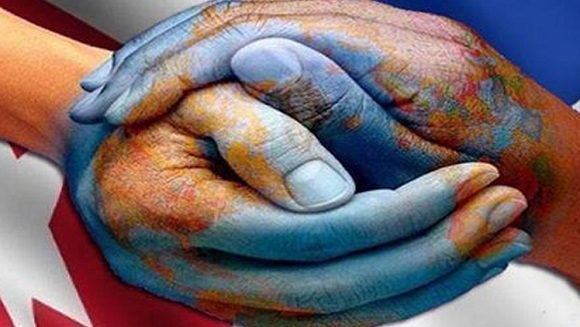
Among so much inequity and indifference, a small archipelago in the Caribbean, called Cuba, has been able to send thousands of doctors and nurses, in some 50 brigades of the “Henry Reeve” Internationalist Contingent, to more than thirty countries in Latin America and the Caribbean, Europe, Africa and the Middle East, to collaborate in the fight against the deadly disease.
Thousands of lives saved or recovered in a scenario of total complexity are the fruit of their solidarity work. The human and professional quality of these sons and daughters of the Cuban people overcomes the most diverse obstacles. It leaves a mark of affection, gratitude and example that is recognized by all those with whom they have shared and whom they have cared for.
That same country, with scarce economic resources but abundant in trained and educated talent, has been able to build an advanced biopharmaceutical industry, which is now preparing to produce 100 million doses of Soberana 02, one of the 4 vaccines on which its scientists are working. This would make it possible to immunize the entire Cuban population (it would be one of the first countries to achieve this) and to have more than 70 million doses available for other peoples of the South. There are already countries interested in acquiring it, such as Vietnam, Iran and Venezuela, Pakistan and India, the Director General of the Finlay Vaccine Institute recently announced.
Researchers from that institution are working with countries such as Italy and Canada to test the impact of the Soberana 01 vaccine on people who have already had COVID-19 and are convalescing, but are at risk of reinfection.
“We are not a multinational where (financial) return is the number one reason. We work the other way around, creating more health and return is a consequence, it is never going to be the priority,” Dr. Vicente Vérez, leader of the main vaccine research center in Cuba, explained to the press last week.
“Our world can only beat this virus one way: united,” the UN Secretary-General recently emphasized. Unfortunately, the vaccines of solidarity and justice have not been able to be applied in the rich world that dominates.
The Antigen of Cuban Vaccines

Vaccines and Sovereignty (III)
The Antigen of Cuban Vaccines Against Covid-19
By Luis A Montero Cabrera
January 21, 2021
Translated by Merriam Ansara for CubaNews and other outlets.
This is the third in a series of articles.

The application of the Cuban Sovereign vaccine candidate begins. Photo: Ismael Francisco/ Cubadebate.
We Cubans have a very remarkable platform for biomedical production, one might even say extraordinary for a country like ours. An infamous 2004 document from the “Commission for the Support of a Free Cuba” of a previous administration in the US described it as unnecessary and very expensive for such a poor country as ours: “Large sums were also directed to activities such as the development of biotechnology and bioscience centers not appropriate in magnitude and expense for such a fundamentally poor nation, and which have failed to be justified financially”. The only thing to be added to this is that those of us in the South with darker skin ought not to have the luxury of science. But our biopharmaceutical sector is the child of necessity, of the creative initiative of a lover of knowledge and a true revolutionary, as was our Fidel, and of an educational policy that gives everybody without distinction the right to reach the highest level of human knowledge and to with that knowledge, create. It was not begun with a specific strategy or goal but became, as it is today a bastion of the knowledge, science and culture of our country. It was and is the fruit of revolutionary thinking.
The development of a vaccine today requires the existence of today’s conditions for this kind of research. It must begin by looking at the scientific literature for antecedents and ways of doing things that can lead to the implementation of more and more exquisite laboratory procedures and rigorous tests. In our case and for the above reasons, a firm base for the research was already established when the COVID 19 emergency arose. Events such as these cannot be foreseen, but the preparation of the conditions to face them is the duty of any decent political system.
Chinese science immediately made available to the international community everything it knew about this dangerous and ultra-contagious virus and in other countries as well the information that was being generated was made available to all. Under these conditions, several of our scientific groups set to work to obtain a specific Cuban vaccine for this disease. One of the efforts, at the Finlay Vaccine Institute, is led by the same Prof. Vicente Vérez who obtained the previous milestone of the vaccine against “Haemophilus influenzae”, the first with synthetic antigens that was used and commercialized in the world. The other groups involved work at the Center for Genetic Engineering and Biotechnology with a long tradition also in the design and production of novel vaccines.
Remember that the essential component of a vaccine is the antigen that activates the immune system and leaves it ready to fight and destroy the foreign invader. Additional determining factors are both the adjuvants and the pharmaceutical forms for delivering the vaccine to humans. If you have an established and strong foundation in these last two aspects, determining the most suitable antigen becomes the heart of the creative work.
The antigen chosen in Cuba, for many reasons, was the “receptor-binding domain” of the virus (RBD). In simple terms, these are the molecules that constitute the external “spikes” so striking that they appear in the pictorial representation and the high-resolution microscopy of the viral molecular aggregate. This CoV “spike” protein (S) plays the most important role in viral binding, fusion and entry into cells of the organism attacked by the virus.
Therefore, it serves as a target for the immune system to develop antibodies, and for scientists to use them as antigens in the design of effective vaccines. An article that appeared in one of the branches of the well-known journal Nature had characterized this component as very promising as a vaccine antigen against COVID 19 as early as March 2020. The authors of the article are a very good reflection of the current internationalization of the basic sciences. Most are Chinese in origin and did extensive work in collaboration between the Lindsley F. Kimball Research Institute in New York, the Beijing Institute of Microbiology and Epidemiology, and the Key Laboratory for Medical Molecular Virology at Fudan University in Shanghai.
Our compañeros evaluated alternatives. One of them was to generate the so-called messenger RNA that was capable of producing the antigen in human cells. It is an ultra-modern technology that is being used in some of the COVID 19 vaccines that are already being applied. It has some advantages, but also has an important disadvantage so far not overcome for a vaccine that is intended to be administered massively throughout the world, especially the less developed one: it requires very strict cooling conditions for its transport and preservation.
Our biotechnology system, on the other hand, has at the Center for Molecular Immunology (CIM) the possibility to “ferment” mammalian cells that directly produce the RBD antigen, since the technology has been developed for other similar productions. It also has the possibility of producing a significant quantity if the antigen is viable for our vaccine. Therefore, all Cuban vaccine candidates, at least up to now, are based on this antigen, with some modification that makes it more active.
The results are exhilarating. And thus our scientists began the race to produce a variety of vaccines, in different institutions and by different scientific groups, collaborating and competing, in order to arrive at the best solutions. “SOBERANAS” 1 and 2, the MAMBISA and the ABDALA are very promising.
Vaccines are drugs. Therefore, they require measurements of their effectiveness, knowing their contraindications and risks, and finding the appropriate formulations and the most viable forms of administration before applying them en masse. Everything must proceed in a strict regulatory framework to ensure that consequences more serious than the disease itself were avoided. If they have the same antigen, how are our vaccine variants different? What state are they in their research and development?
Havana, January 20, 2021
 Luis Alberto Cabrera Montero holds a Doctorate Chemical Sciences. He is Senior Researcher and Full Professor at the University of Havana. He is President of the Scientific Advisory Council of the University of Havana and is a Merit Member and Coordinator of Natural and Exact Sciences of the Academy of Sciences of Cuba. For a full biography, see http://www.academiaciencias.cu/en/node/674
Luis Alberto Cabrera Montero holds a Doctorate Chemical Sciences. He is Senior Researcher and Full Professor at the University of Havana. He is President of the Scientific Advisory Council of the University of Havana and is a Merit Member and Coordinator of Natural and Exact Sciences of the Academy of Sciences of Cuba. For a full biography, see http://www.academiaciencias.cu/en/node/674
What are vaccines?

Vaccines and Sovereignty (II):
What are Vaccines?
By Luis A Montero Cabrera
January 11, 2021
Translated by Merriam Ansara for CubaNews and other outlets.
This is the second in a series of articles.
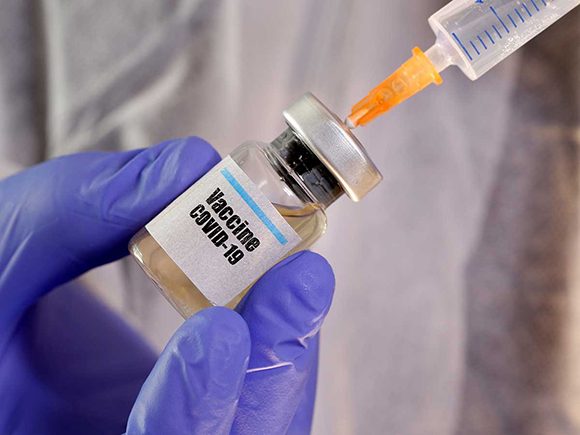
Seventy coronavirus vaccines are in development worldwide, and three are already being tested in human trials, the World Health Organization said. Photo: iStock
The molecules of an invading biological entity that are identified and are accessible to the human immune system are often referred to as “antigens”. They are usually expressed in the outermost parts of the nanoscopic carrier and are a necessary part of its composition. They are the same when found in a virus, in a fungus, in a bacterium, or in the cells of an organ from another being transplanted into our body.
An important characteristic of the infection and self-healing process is that when an individual overcomes a disease by the action of the immune system, it usually remains prepared to defeat it in future reinfections of the same type. The system “remembers” the intruder antigen and thus we are prepared to reject its carriers again. It is a biological fabric very refined by natural selection through many generations and species.
By realizing this, and using scientific reasoning, human beings try to use this defense “memory” to ensure that people do not get sick with an infection, even if they have never suffered from the disease. It is about “teaching” the immune system of each individual to activate and destroy any morbid invasion once its antigens are detected. The challenge is great, because to invade the body with antigens from a certain infection without making the person sick requires wise processing.
The result is known as a “vaccine.” Its name is due to the fact that the first formulations were cultivated in cows. It is always a chemical-biological preparation of antigens to achieve active acquired immunity against a particular infectious disease. The first vaccines contained the organisms that caused the disease from weakened or dead forms of themselves. It was not known then that what the immune system recognized was only its antigens. These preparations thus “taught” the human body to “shoot” the actions that would destroy the invader. Vaccines can be prophylactic when they prevent and prevent the effects of future infection, as it is desired that COVID-19 be, or therapeutic when they are used to fight a disease that has already invaded the body, such as cancer.
Most likely, the first disease to be prevented by inoculation was smallpox. It seems that the first recorded use of it occurred in the 16th century in China. The scientific and reproducible vaccine against smallpox was invented and duly reported in the specialized literature in 1796 by the English physician Edward Jenner. Smallpox was a contagious and deadly disease, and it is said to kill up to 60% of infected adults and 80% of children.
Tomas Romay y Chacón was a physician and scientist born in Havana in 1764. Having begun by studying law he switched to medicine and in 1791 at the age of 27 was 33rd medical graduate in Cuba. He became a professor at our University of Havana and co-founder of the Royal Patriotic Society of Havana, today the Economic Society of Friends of the Country. As early as 1804, just 8 years after the appearance of the vaccine in Europe, Romay implemented smallpox vaccination on our island with preparations made “in situ” with the support of the Patriotic Society. In this way, he used the local science instead of waiting for delayed arrival of the vaccine from the Metropolis. He and his collaborators followed the procedures published and described by Jenner and manufactured the first Cuban vaccine, the smallpox vaccine. A marvelous success of a nascent, Creole, nation’s innovation and wisdom.
Time passed and scientific research led to the knowledge that the key to vaccines were the antigens and not the entire infectious entities.
Vaccines have been produced in Cuba for many decades. Two of them at least have been both original and exclusive. In 1987 Drs. Concepción Campa and Gustavo Sierra led a scientific group at the Finlay Vaccine Institute to obtain a vaccine that at that time was the first of its kind in the world. This vaccine was and still is very effective against a bacterium that attacks the meninges in the brain and nervous system, called group B and C meningococcus. This type of meningitis is particularly deadly in children. Cuban science at the University of Havana produced in 2004 the world’s first efficient commercial vaccine based on an antigen manufactured in the laboratory, that is, “synthetic”. Prof. Vicente Vérez, a scientist who has dedicated his life to the chemistry of sugars, his wife Dr. Violeta Fernández (who died very young) and their collaborators were the authors of this second great feat. Thanks to the work of these scientific groups, many Cuban children and children in many parts of the world are alive and active today as adults.
Vaccines don’t just contain antigens. The immune system is not equally effective in all people and at all ages. Certain antigens are more activating than others because they are more easily recognized and “trigger” the work of the entire system that feels invaded. Vaccines are made more effective with so-called “adjuvants” (helpers) which, when given together with the appropriate antigens, cause many people’s immune systems to wake up more quickly and efficiently.
New types of vaccines have recently appeared that do not contain antigens directly but rather RNA that allows our cells to synthesize them “in situ”, recognize them and learn to fight them. While the vaccines that contain only antigens without the need to supply the infectious agent are efficient and safe, these others are as well and furthermore allow for mutations of the virus to be taken into account with much greater facility and so ensure the utility of the vaccines over time.
It can be said that vaccines are pieces of biological technology that represent a lifeline for many human beings. Without them we would be at the mercy of Darwinian natural selection and an epidemic would be survived only by the few who could overcome it thanks to some singularity of their organism. This was the case before science intervened by inventing vaccines. The cost was immense in precious lives ending early. It could also be said that without vaccines some type of infection could come along that might lead to the extinction of homo sapiens as a living species, which has happened many times before with other species in the beautiful and harsh history of life on this planet.
And what will the current vaccines against COVID and very particularly the SOBERANAS, MAMBISA and ABDALA be like? How do you prove that they serve what they have been designed for?
Havana, January 6, 2021
 Luis Alberto Cabrera Montero holds a Doctorate Chemical Sciences. He is a Senior Researcher and Full Professor at the University of Havana. He is President of the Scientific Advisory Council of the University of Havana and is a Merit Member and Coordinator of Natural and Exact Sciences of the Academy of Sciences of Cuba. For a full biography, see http://www.academiaciencias.cu/en/node/674
Luis Alberto Cabrera Montero holds a Doctorate Chemical Sciences. He is a Senior Researcher and Full Professor at the University of Havana. He is President of the Scientific Advisory Council of the University of Havana and is a Merit Member and Coordinator of Natural and Exact Sciences of the Academy of Sciences of Cuba. For a full biography, see http://www.academiaciencias.cu/en/node/674
Subscribe to Blog via Email
| M | T | W | T | F | S | S |
|---|---|---|---|---|---|---|
| 1 | 2 | 3 | 4 | 5 | 6 | |
| 7 | 8 | 9 | 10 | 11 | 12 | 13 |
| 14 | 15 | 16 | 17 | 18 | 19 | 20 |
| 21 | 22 | 23 | 24 | 25 | 26 | 27 |
| 28 | 29 | 30 | 31 | |||

You must be logged in to post a comment.